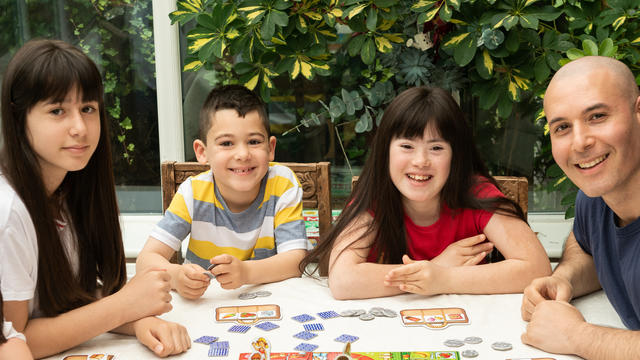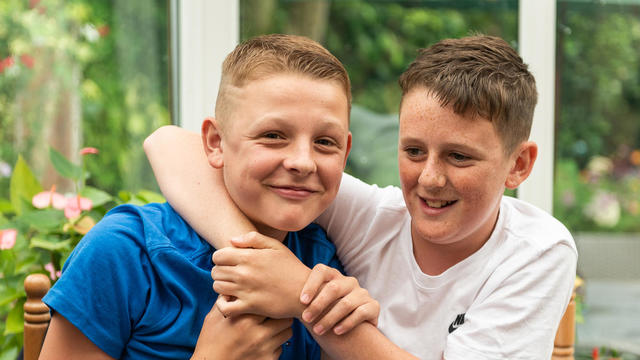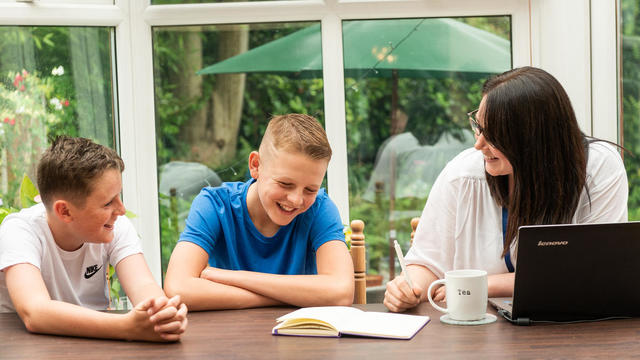The Children’s Wellbeing and Schools Bill: What It Means for Children in Care and Unregistered Care Settings

Introduced in Parliament in December 2024, the Children’s Wellbeing and Schools Bill could shape the future of both social care and education. It aims to drive high standards in education and care, ensure every child can achieve and thrive, and strengthen safeguarding and support for vulnerable children.
The Bill has two key parts:
- The first focuses on reforming children’s social care, building on the government’s policy paper Keeping children safe, helping families thrive, published in November 2024.
- The second addresses education.
While the Bill is wide-ranging, one of the most critical areas for the Together Trust is how it addresses the use of unregistered children’s homes.
Tackling unregistered settings: a step forward, but not far enough
Under the Bill, the government will grant Ofsted new powers to issue financial penalties to providers operating unregistered children’s homes. This change intends to provide a quicker route to enforcement than prosecution under the Care Standards Act 2000, which can take years. While this is a step forward, it does not go far enough.
Unregistered children’s homes are illegal. They are not subject to regulatory oversight and place children at significant risk. Last year, in our blog, The Emerging Crisis of Unregistered Children’s Homes, we highlighted the growing use of these placements and the dangers they pose to vulnerable children.
We want to see a clear plan to phase out unregistered accommodation entirely. Every child in care should live in a regulated, safe and supportive setting that meets their needs and upholds their rights.
Staying Close support must not create a two-tier system
The Bill requires councils to assess whether care leavers up to the age of 25 need Staying Close support and to offer it where required. While this change is a positive step for young people leaving residential care, it does not extend the same opportunity to care leavers from foster homes.
This lack of consistency risks creating a two-tier system. The Fostering Network is calling for Staying Put support to extend to 25 so all young people can remain in stable homes if they choose to.
Care leavers deserve a consistent national offer
The Bill will require local authorities to publish the support they provide to care leavers as they transition to adulthood. While this adds transparency, the current picture is inconsistent. Local offers vary greatly depending on where a young person lives. These inequalities will likely continue without a national care offer based on statutory entitlements.
Young people leaving care should have the same rights and support, no matter where they are in the country.
Profit should never come before care
The Bill introduces a power to cap profits in the children’s care sector if existing reforms fail. This change aims to ensure public funding benefits children and does not generate excessive profits.
A financial oversight system will monitor large care providers and issue early warnings if a collapse is likely. While this is a step towards better financial accountability, the measures do not extend to all providers, such as those offering supported accommodation. We want a consistent approach across all parts of the care system.
Regional Care Co-operatives need clear safeguards
Regional Care Co-operatives (RCCs) are a key part of the Bill, aiming to help local authorities plan, fund and commission placements together. The hope is to improve placement availability and reduce reliance on expensive providers by pooling resources.
However, this model could result in local authorities moving children far from their communities and support networks without proper safeguards. We want to see local authorities design RCCs to strengthen local capacity and protect children’s right to live near their communities.
Key questions still unanswered
While introducing financial penalties is welcome, the Bill does not yet answer several important questions.
-
What happens to children once they are found to be in unregistered settings?
-
Will fines be issued while those children remain in unsafe placements?
-
How will enforcement work in practice?
-
And if the government eventually introduces a profit cap, how will savings be reinvested to improve children’s day-to-day lives?
These are not small details. They go to the heart of whether the Bill will deliver meaningful reform or introduce more bureaucracy without changing outcomes for children.
What we want to see
We are calling for a national commitment to end the use of unregistered accommodation for children in care. We are proud to be part of a sub-group led by the Alliance for Children in Care and Care Leavers, working with others across the sector to push for stronger protections. Every child deserves to live in a safe, supportive and properly regulated home.
Next steps
The Children’s Wellbeing and Schools Bill will have its second reading in the House of Lords on Thursday 1 May. Members will debate the Bill’s key aims and proposals, including those relating to unregistered care. You can follow its progress on the Parliament website.
Stay informed about our work by:
-
Signing up to our campaign updates
-
Checking our website news





